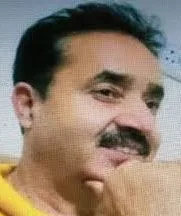Teachers’ Day, once a festival of gratitude, has become a mirror of contradictions. On this day, students present flowers, garlands, and speeches to their teachers, extolling them as the guiding lights of society. Yet behind the ceremonial smiles lies a more uncomfortable truth: the very idea of a teacher has shifted from that of a torchbearer of wisdom to that of a service provider in a commercial marketplace of education.
The question that confronts us is sharp and unavoidable—are our contemporary teachers more responsible to their duties, or has teaching been reduced to a commercial activity where the lamp of knowledge flickers under the winds of coaching centres and tuition classes?
There was a time when the teacher was not merely an employee of a school but a moral force, a living ideal, a figure whose voice carried both knowledge and conscience. In old Kashmir or in the villages of India, a teacher was addressed as “masterji” or “guruji,” titles that carried respect not by law but by love. Parents entrusted their children to the teacher with the faith that they would not only learn arithmetic and alphabets but also humility, discipline, and the meaning of honesty.
To be a teacher was to belong to a noble fraternity, one that stood closer to sainthood than to service. The Gurukul tradition, with its emphasis on selfless imparting of wisdom, and even the later institutional schooling, carried this aura of reverence. Teachers’ Day itself is celebrated in memory of Dr. Sarvepalli Radhakrishnan, who embodied the philosophy that teachers should be thinkers, guides, and nation-builders, not merely instructors.
But as we look around today, the landscape is different. The mushrooming of coaching centres in every lane and the booming industry of tuition classes—both offline and online—reveal that the school has ceased to be sufficient. Parents pay hefty fees to schools, and yet the same parents spend another fortune on private coaching, sometimes for the very subjects their children are already taught during school hours.
Students, even after spending six hours in classrooms, rush to coaching centres for four more hours of formulas, tricks, and strategies. Why does this paradox exist? Why is the schoolteacher no longer trusted to prepare the student for life or even for examinations?
The answer lies in a multi-layered reality. Schools today often struggle under the burden of bureaucracy. Teachers are loaded with administrative tasks—record keeping, exam supervision, clerical duties—that steal away the energy that could have gone into preparing inspiring lessons. The curriculum, rigid and exam-centric, forces teachers to cover content rather than cultivate thought.
Creativity is stifled, and the classroom becomes a mechanical space where attendance and syllabus completion overshadow curiosity. In such a system, even sincere teachers find themselves reduced to functionaries. Meanwhile, those who wish to go the extra mile often turn to private tuitions where, freed from the straitjacket of school protocols, they can teach more freely—and also earn extra income that their modest salaries cannot provide.
This dual role of teachers—officially tied to schools but unofficially running coaching centres—has complicated the very identity of teaching. For many, tuition has become less a side activity and more the main source of livelihood. Coaching centres, in turn, capitalize on the fear of parents and students.
They advertise guaranteed results, boast of past toppers, and promise to decode exam patterns in ways schools never claim to do. In the eyes of anxious parents, the coaching centre appears as a ticket to security. And in a society obsessed with marks, ranks, and competitive exams, this obsession grows unchecked.
The tragedy, however, is that in this race, the soul of education is being lost. Once, the relationship between teacher and student was intimate and transformative. A single encouraging remark from a teacher could ignite a timid child’s confidence; a stern rebuke could redirect a wayward mind. Teachers knew not only the subjects their students studied but also the struggles their hearts carried.
Today, in large coaching halls where hundreds of students sit before a microphone-wielding instructor, the relationship is reduced to anonymity. The student becomes a roll number, a fee receipt, a potential rank. The teacher becomes a performer, measured not by wisdom but by how many students cracked an entrance exam.
Still, it would be unjust to paint all teachers with the brush of commercialization. Even now, in forgotten classrooms, there are teachers who resist this tide. They arrive early, stay late, and guide students patiently without expecting extra pay. They see teaching as a sacred trust, a covenant with the future, a calling rather than an occupation.
These teachers may never appear in coaching advertisements or earn lavish incomes, but their influence endures silently in the lives of those they touch. Every adult who fondly recalls a “favourite teacher” is proof that true teaching still survives in corners of this commodified system.
Why, then, do students continue to rush to coaching centres? The answer is not only in the failure of schools but also in the psyche of society. Parents are gripped by fear—fear that their child will be left behind, fear that without the right coaching their child cannot compete in the brutal examinations that decide careers.
Students themselves, seeing peers flock to tuitions, feel insecure if they do not join. The coaching centre thus becomes less an option and more a compulsion, an insurance policy against failure. This psychology has been nurtured by decades of competitive culture where success is measured narrowly in marksheets and admissions, not in wisdom or character.
And yet, somewhere beneath this frenzy, there remains a yearning for the authentic teacher. Even the most coaching-hardened student carries a memory of the one teacher who genuinely cared, who listened, who inspired. This yearning proves that the human connection in teaching is irreplaceable.
Technology, coaching, and tuition may provide strategies, but they cannot give meaning. They may prepare students for exams, but they cannot prepare them for life. The teacher who looks into a child’s eyes and sees a future citizen, not merely a future employee, is the one who embodies the essence of education.
As we mark Teachers’ Day, then, it is not enough to celebrate with ceremonial gestures. One must confront uncomfortable questions. Why does our society undervalue teachers so much that they must depend on tuitions for survival? Why do we define success so narrowly that coaching appears indispensable? Why can’t schools be reimagined as spaces of curiosity and creativity rather than factories of exam preparation? Can we return to an era when respect for teachers was genuine and daily, not tokenistic and annual?
If the lamp of teaching is to shine again, we must restore dignity to the teacher, not just in words but in deeds. Salaries must reflect the value of their work. Schools must be freed from bureaucratic chains. The culture of blind competition must be tempered with the spirit of learning for its own sake. And parents, too, must rethink their approach: instead of outsourcing their anxieties to coaching centres, they must trust and support the teachers who guide their children.
The chalk of the classroom must not be allowed to turn entirely into currency. Knowledge should not be sold as a commodity but shared as a gift. Teaching is not a trade but a transmission of wisdom across generations. If society forgets this truth, we risk producing graduates who are technically skilled but morally adrift, citizens who can crack exams but cannot answer life’s deeper questions.
But if we revive the dignity of teaching, if we honour the teacher not just once a year but in the fabric of daily life, then the flame of education will not only survive but illuminate generations to come.
The choice lies before us: do we allow the lamp of the teacher to fade in the neon glow of coaching centres, or do we rekindle it as the eternal flame that guides society through its darkness? The answer will define not only the fate of our teachers but also the destiny of our children.
(Author is RK Columnist and can be reached at: [email protected])








